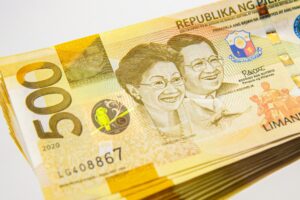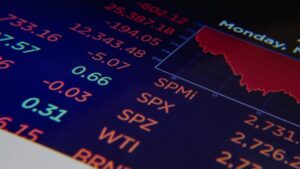How A Filipino Can Make Millions in Forex Trading Today 2026

Forex trading, short for foreign exchange trading, involves the buying and selling of currencies with the aim of making a profit.
It’s one of the largest and most liquid financial markets globally, with a daily trading volume exceeding $6 trillion. The potential to make money in forex trading is real, but it’s important to recognize that it comes with both opportunities and downside.
Forex (foreign exchange) trading offers immense opportunities for generating profits, but it also carries substantial risks.
This guide aims to provide you with a comprehensive roadmap for navigating the forex market successfully in today’s trading landscape.
Remember, there are no guarantees in trading, and it requires dedication, discipline, and continuous learning.
Education and Knowledge
Before you dive into forex trading, understand the fundamentals. Learn about currency pairs, market participants, trading strategies, and technical and fundamental analysis. There are numerous online courses, webinars, books, and educational platforms that can help you build a solid foundation.
In essence, knowledge in forex trading empowers you to make informed decisions, manage risks effectively, and increase your chances of success. It’s an investment that pays off through improved decision-making, consistent profits, and the ability to navigate the complexities of the forex market.
Choose a Reliable Broker
Selecting the right broker is crucial. Look for brokers with a good reputation, regulatory compliance, competitive spreads, efficient order execution, and user-friendly trading platforms.
I do recommend this particular platform, especially if you’re a Filipino that want to enter on forex trading. You can easily deposit your capital via GCASH, without any hustle at all. Within instant deposit, you can begin to trade on forex.
This is the Forex Trading Broker!
Develop a Trading Plan
A well-defined trading plan outlines your goals, risk tolerance, trading style, and strategy. It should include entry and exit rules, risk management techniques, and a detailed trading schedule.
Trading plan will be your guide on how certain market conditions happens, especially when you have a position on certain currencies that are not doing well.
With this trading plan, any market conditions happening will not affect your strategy whether it is on your favor or not.
Risk Management
Preserving your capital is essential. Never risk more than you can afford to lose on a single trade. Use tools like stop-loss and take-profit orders to manage your risk effectively.
Risk is always present anywhere, but in trading Forex, the risk is much higher since it will also reward you with tons of money.
You must have also a risk management always in place, so that if something happens not in your favor, you can immediately react to it, with minimal loss or profit.
Practice with a Demo Account
Most brokers offer demo accounts that allow you to practice trading with virtual money. This is a great way to test your strategies, refine your skills, and gain confidence without risking real capital.
The trading broker I recommend above, do have Demo account section, where you can practice your trading and develop your own trading strategies.
I do recommend to practice trade on demo account at least 3 months, so that you will be familiarize the broker itself, it will provide you many information on how Forex trading is.
Technical Analysis
Study chart patterns, indicators, and candlestick formations to identify potential trading opportunities. However, avoid overloading your charts with too many indicators, as it can lead to confusion.
Technical Analysis needs time and effort on your part, to read books and many journals, because on this part, you will be studying the trading chart on how the market presents itself via chart.
If you master this technical analysis, you can easily make money on Forex trading on any market conditions.
Fundamental Analysis
Keep track of economic indicators, central bank decisions, geopolitical events, and other factors that impact currency movements. Fundamental analysis helps you understand the broader market context.
As mention above, market condition is greatly affected by many factors such the government regulations, a certain event and many other events. So, by monitoring those, you can have advantages in forex trading if something happens.
Develop Your Trading Strategy
There are various trading strategies, such as day trading, swing trading, and position trading. Choose a strategy that aligns with your personality, schedule, and risk tolerance. Backtest your strategy on historical data to evaluate its performance.
It’s important to note that while this strategy can be effective in trending markets, it may produce false signals during ranging or consolidating market conditions.
As with any trading strategy, risk management is crucial, and it’s a good idea to backtest the strategy on historical data before using it in a live trading environment.
Additionally, combining this strategy with other indicators or filters could enhance its accuracy. Always keep up to date with market conditions and adjust your strategy accordingly.
Psychological Discipline
Trading psychology is crucial. Keep emotions in check, avoid revenge trading, and maintain a rational mindset. Accept losses as part of the process and don’t let them impact your decision-making.
Diversification
Avoid putting all your capital into a single trade or currency pair. Diversify your trades to spread risk and improve the chances of consistent gains.
it’s important to note that while diversification can reduce risk, it does not eliminate it entirely. It’s crucial to thoroughly research and understand each currency pair you’re trading, as well as the factors that influence their movements.
Additionally, over-diversification can lead to dilution of potential profits, so finding the right balance between diversification and focused trading is key.
As with any trading approach, careful risk management, proper education, and continuous monitoring of your trades are essential components of successful forex trading, whether you’re using diversification or any other trading strategy.
Keep Detailed Records
Maintain a trading journal to record your trades, strategies, and outcomes. Regularly review your journal to identify patterns, strengths, and areas for improvement.
Continuous Learning
Forex trading is a journey of continuous learning. Stay curious and open to new ideas, strategies, and insights. Participate in trading forums, read books, and follow reputable traders to gain fresh perspectives.
Start Small and Gradually Scale Up
Begin with a small trading account and gradually increase your trading size as you gain confidence and experience. Avoid the temptation to over-leverage, which can lead to significant losses.
Network and Learn from Others
Connect with other traders to share experiences, insights, and strategies. Learning from experienced traders can accelerate your learning curve.
Conclusion
Successful forex trading requires a combination of knowledge, strategy, discipline, and adaptability.
There’s no shortcut to consistent profits, but by following the principles outlined in this guide, you can position yourself for long-term success in the ever-evolving forex market.
Remember that patience and perseverance are key virtues in the world of trading.
HERE’S an Ebook for Investing in the Philippine Stock Market









